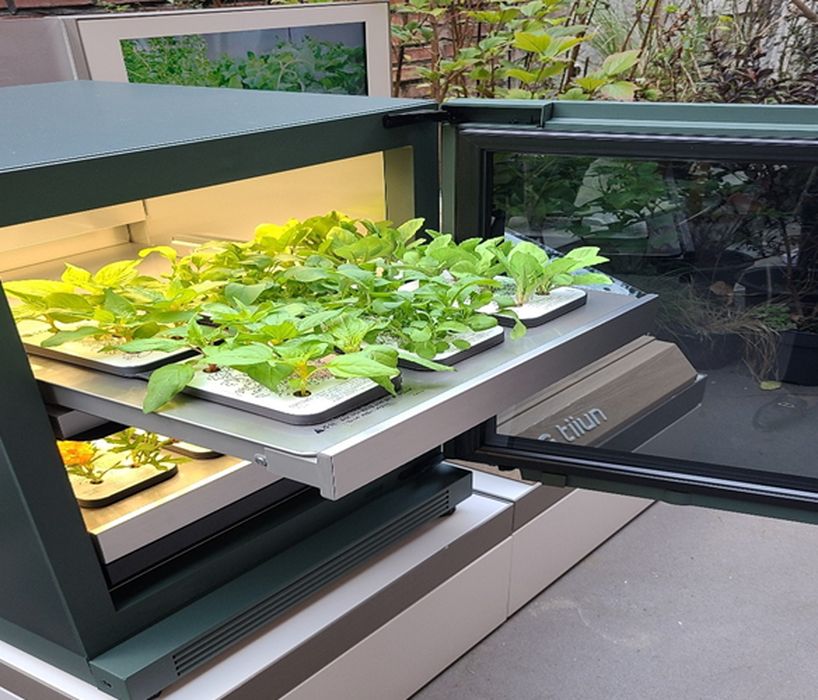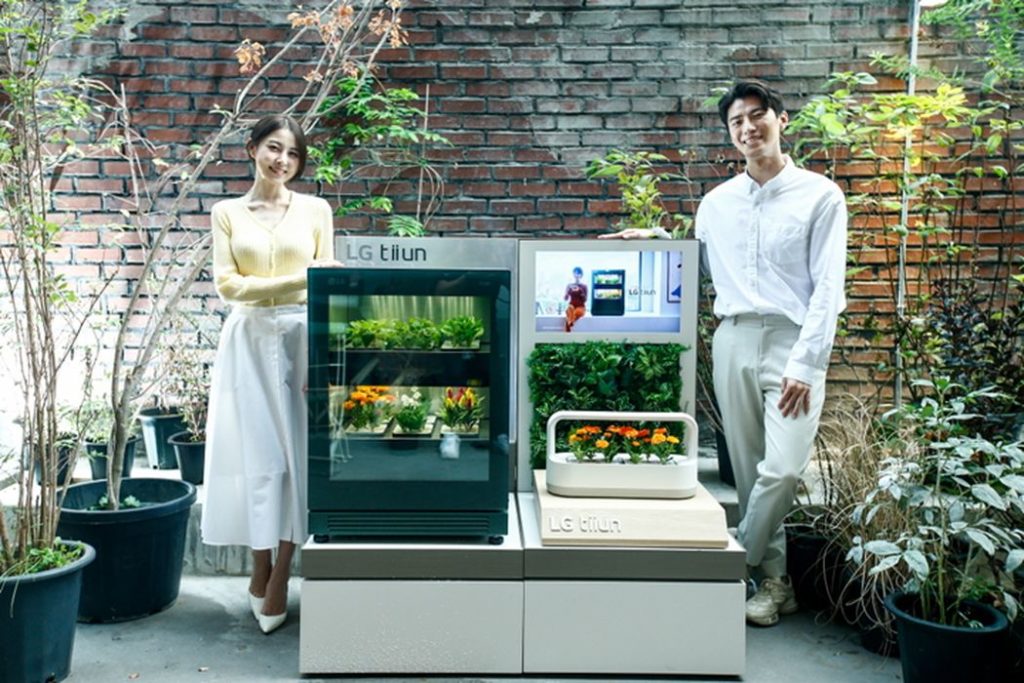
Charles R. Goulding and Preeti Sulibhavi look at how interest in home gardening has increased could generate more 3D printing activity.
Korean headquartered Lucky Goldstar (LG) has just released an exciting new electronic appliance for residential interior plant gardening called the Tiiun, meaning “sprout” in Korean. The Tiiun, is essentially an aquafarming system with internal systems for temperature control, watering, and air purification.
Designed as a completely self-contained unit, LG Tiiun holds two shelves that can each carry up to six all-in-one seed packages along with three different kinds of seed kits. With each seed package, containing 10 holes for seed germination, consumers can grow a myriad of greens simultaneously for garden-to-table food in only four to eight weeks. This is faster than traditional growth methods with less mess thanks to the magic of technology and LG’s advanced innovation.
A CES 2022 Innovation Award winner, LG Tiiun was recognized for its innovative technology and design and for the differentiated consumer benefit it delivers. This ultra-modern, smart gardening system leverages LG’s technological expertise across multiple home appliance categories to deliver reliable results and an effortless, largely automated, plant cultivation process, employing various technologies from generations of expertise honed from developing advanced refrigerators, water purifiers and ventilation systems.
In this author’s opinion, the Tiiun is the right product at the right time. LG already has a full range of residential appliances including refrigerators, ovens, microwaves, and laundry equipment. Many of the core technologies in Tiiun are adopted from LG’s other appliances (i.e., refrigerators, water purifiers, etc.). Appliance components and parts have become a major 3D printing category. This new appliance will also benefit from LG’s extensive distribution network where the product can be introduced to more users than ever.
Many people live in apartments or do not have outside environments suitable for gardens at a time when fresh vegetables are increasingly popular. The 3D printing industry already offers a wide array of gardening tools, pots and planters, and other green accessory products. Prusa Research, the Czech 3D printing powerhouse, published a video covering a variety of 3D printed gardening applications, as well.

The Research & Development Tax Credit
The now permanent Research and Development (R&D) Tax Credit is available for companies developing new or improved products, processes and/or software.
3D printing can help boost a company’s R&D Tax Credits. Wages for technical employees creating, testing, and revising 3D printed prototypes can be included as a percentage of eligible time spent for the R&D Tax Credit. Similarly, when used as a method of improving a process, time spent integrating 3D printing hardware and software counts as an eligible activity. Lastly, when used for modeling and preproduction, the costs of filaments consumed during the development process may also be recovered.
Whether it is used for creating and testing prototypes or for final production, 3D printing is a great indicator that R&D Credit eligible activities are taking place. Companies implementing this technology at any point should consider taking advantage of R&D Tax Credits.
Conclusion
The global Coronavirus pandemic and its quarantining and social-distancing protocols have pushed many of us to take up hobbies. Gardening has certainly been a popular one. This new gardening appliance, the LG Tiiun, for the home is sure to be a popular find for many gardening enthusiasts, and in turn, might generate more 3D printing activity for gardening accessories.
